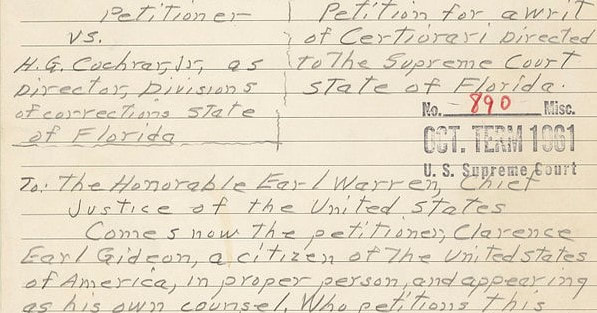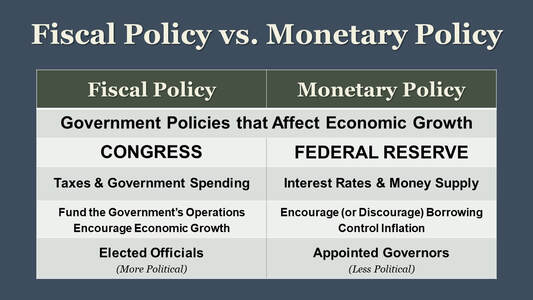|
Gideon v. Wainwright is a 1963 Supreme Court case that established the right of all criminal defendants to an attorney, even if they cannot afford one. It is considered to be a landmark case in establishing the rights of the accused. It is one of the fifteen required Supreme Court cases on the AP United States Government and Politics exam. For more AP US Government and Politics exam resources visit: Facts of the Case
The DecisionIn a unanimous decision, the Supreme Court ruled that Gideon had a right to an attorney under the Sixth Amendment, guaranteeing all criminal defendants the right to an attorney. This decision is an example of selective incorporation, in which the Supreme Court incorporates parts of the Bill of Rights, which initially only applied to the federal government, to also apply to the states. While in prison, Gideon did some research in the prison library and became convinced that he had been denied his Sixth Amendment right to an attorney. He petitioned the Supreme Court for a writ of certiorari and the Court agreed to hear his appeal. Gideon's case was re-tried in a Florida court, where he was found Not Guilty with the help of a court-appointed attorney. For a deeper look into Gideon v. Wainwright, take a look at the YouTube video and study guide that I created with my friends at Marco Learning!
0 Comments
In my latest YouTube video, I explain Fiscal Policy and Monetary Policy to AP Government students.
Monetary Policy, which is set by the Federal Reserve Board of Governors, deals with interest rates and the money supply. The Federal Reserve sets the rate at which banks may borrow from the Fed in the short term, which impacts all other interest rates. High interest rates discourage borrowing and low interest rates encourage borrowing. The Fed also regulates the money supply, determining how much currency is in circulation in order to control inflation. Since the members of the Federal Reserve Board of Governors are appointed by the president and confirmed by the Senate for 14 year terms, monetary policy is not as directly responsive to public opinion as fiscal policy. The Fed is set up as an independent regulatory agency, so it does not answer directly to politicians (though it is not entirely immune to political pressure). Fiscal policy and monetary policy both affect economic growth. For example, Congress may cut taxes in order to stimulate the economy, while the Fed may lower interest rates in order to encourage investment. If you're looking for help preparing for you AP Government exam, check out the online course that I created with my friends at Marco Learning. Click here for more information.
I'm excited to announce that I have created an online AP Government and Politics course with my friends at Marco Learning! For more information, visit marcolearning.com.
|
Tom RicheyI teach history and government Archives
May 2023
Categories
All
|




 RSS Feed
RSS Feed